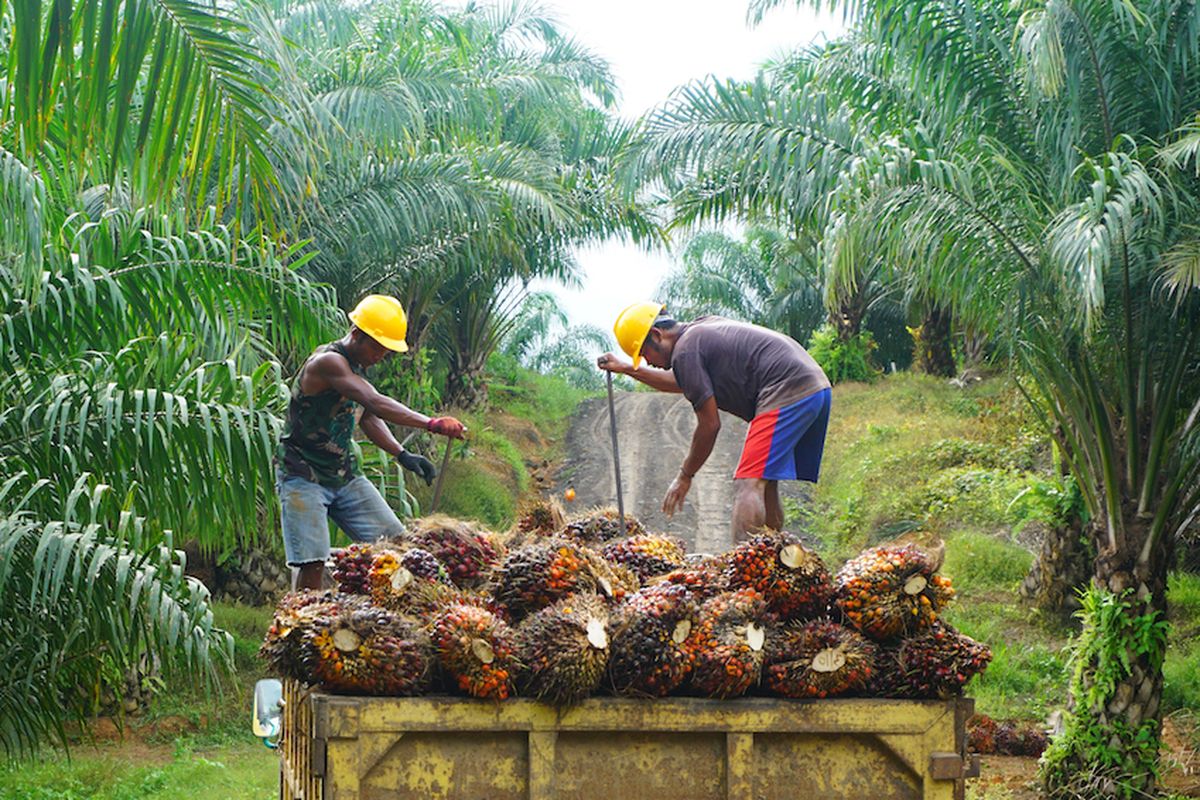Indonesia Imposes Biodiesel Program to Fight Smear Campaign Against Palm Oil in EU

JAKARTA, KOMPAS.com – Indonesia hopes its mandatory biodiesel program will help counter the flak its palm oil industry is taking from media and authorities in the European Union.
Palm oil exports reached $154.9 million in 2019, accounting for 22.4 percent of the country's total exports. But the industry continues to suffer the impact of the black propaganda perpetuated to keep the commodity's price unstable in the export market, according to the Indonesian Oil Palm Estate Fund (BPDP-KS).
“The negative campaign is one of the causes of the low selling price of Indonesian palm oil products,” said BPDP-KS Supervisory Board Chairman Rusman Heriawan during a webinar on Monday, June 29.
The smear campaign, Rusman said, touched on deforestation, a carbon footprint that was considered high, the welfare of the palm oil farmers, and the use of child labor by palm oil companies.
Also read: Indonesia Lures 7 Foreign Locators to Batang Industrial Estate, 17 More in Talks With Government
He explained that the palm oil industry contributed significantly to providing job opportunities in Indonesia. The industry has recruited more than 22 million workers from upstream to downstream activities. Of this number, about seven million people work in the upstream sector, while more than 16 million people in the downstream sector, including manpower who are indirectly related to palm oil.

Biodiesel program
In the effort to fight the smear campaign and to stabilize the crude palm oil (CPO) price, the government has begun to run the mandatory biodiesel program.
The government mandated a 2.5 percent biodiesel mix in 2008 and gradually increased the biofuel content to 7.5 percent in 2010. Later the percentage of biodiesel increased from 10 percent to 15 percent from 2011 to 2015.
Then on January 1, 2016, the government mandated a 20 percent biodiesel mix (B20). Now, the government is intensifying the mandatory B30 or biodiesel program by up to 30 percent.
Muhammad Saifullah, Acting Assistant Deputy of Plantation and Horticulture at the Coordinating Ministry for Economic Affairs, said that the mandatory biodiesel program can save up to $6.81 billion in foreign exchange reserves and contribute to tax revenues of up to 2.74 trillion rupiahs ($190 million).
Also read: Luhut Panjaitan: Indonesian SMEs are the Backbone of National Economy
Biodiesel could ralso educe greenhouse gas emissions by 23.3 million tons of carbon dioxide (Co2), Saifullah added.
“This was implemented under the 2019 program and the ongoing program this year.”
He further added that the smear campaign carried out by the foreign states and media did not happen for other vegetable oil products such as rapeseed and soybean. As long as the palm oil price remains cheap compared to other vegetable oil prices, the negative campaign will continue, he said.































